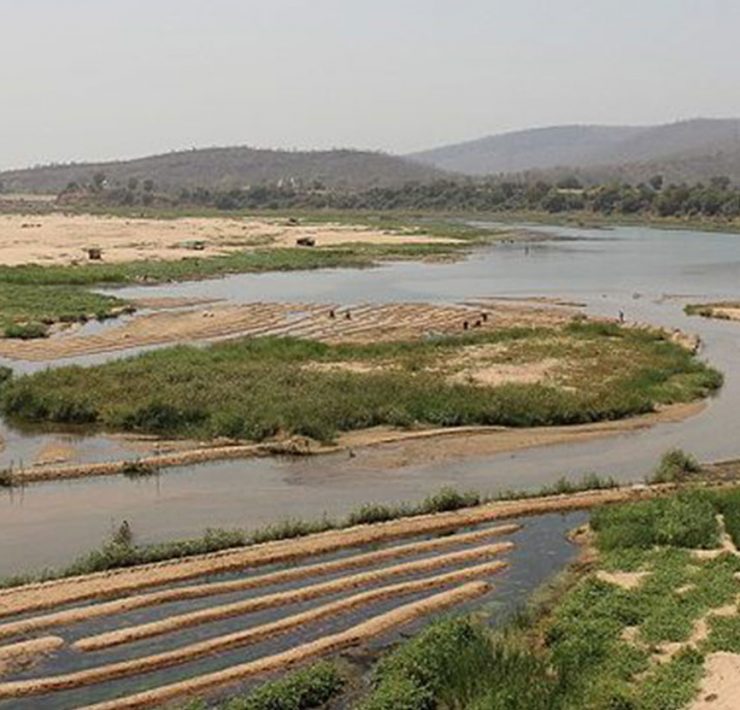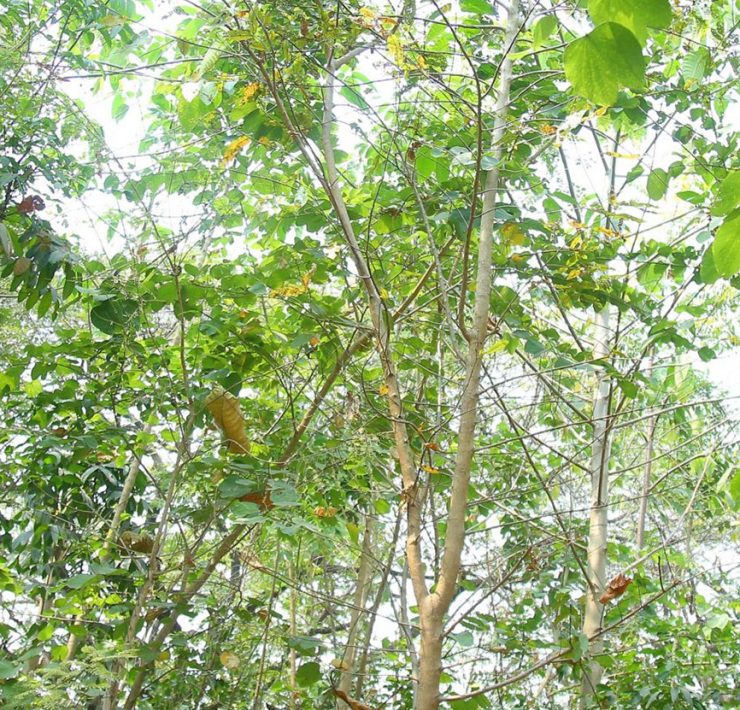500+ experts call on world’s nations to not burn forests to make energy

- Last week, more than 500 top scientists and economists issued a letter to leaders in the US, EU, Japan, South Korea, and the UK, urging them to stop harvesting and burning forests as a means of making energy in converted coal burning power plants.
- The burning of forest biomass to produce electricity has boomed due to this power source having been tolerated as carbon neutral by the United Nations, which enables nations to burn forest biomass instead of coal and not count the emissions in helping them meet their Paris Climate Agreement carbon reduction targets.
- However, current science says that burning forest biomass is dirtier than burning coal, and that one of the best ways to curb climate change and sequester carbon is to allow forests to keep growing. The EU and UK carbon neutrality designations for forest biomass are erroneous, say the 500 experts who urge a shift in global policy:
- “Governments must end subsidies… for the burning of wood…. The European Union needs to stop treating the burning of biomass as carbon neutral…. Japan needs to stop subsidizing power plants to burn wood. And the United States needs to avoid treating biomass as carbon neutral or low carbon,” says the letter.
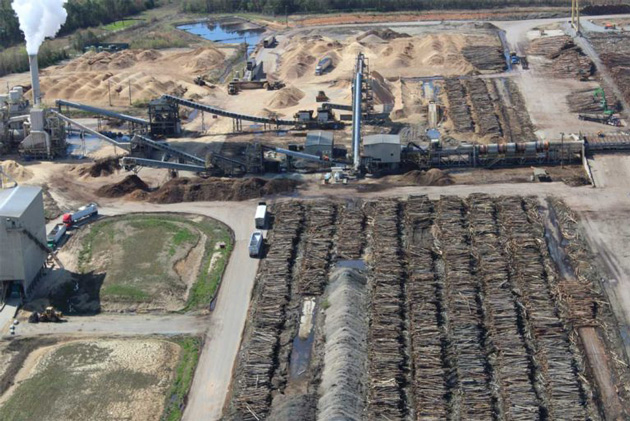
More than 500 scientists and economists implored world leaders last week to stop treating as emissions-free the burning of wood from forests to make energy and heat, and to end subsidies now driving the explosive demand for wood pellets. Both actions, they write, are causing escalating deforestation in the Southeast US, Western Canada and Eastern Europe.
The letter was received Feb. 11 by US President Joseph Biden and European Union President Ursula Von der Leyen, as well as Charles Michel, president of the European Council, Japanese Prime Minister Yoshihide Suga, and South Korean President Moon Jae-in. The document is expected to soon be sent to UK Prime Minister Boris Johnson.
“We the undersigned scientists and economists commend each of you for the ambitious goals you have announced… to achieve carbon neutrality by 2050,” the two-page letter begins. “Forest preservation and restoration should be key tools for achieving this goal and simultaneously helping to address our global biodiversity crisis.
However, “We urge you not to undermine both climate goals and the world’s biodiversity by shifting from burning fossil fuels to burning trees to generate energy.”
In the EU alone, nearly 60% of renewable energy already comes from forest biomass, amounting to millions of metric tons of wood pellets burned annually. The United Kingdom, The Netherlands and Denmark are among the leading consumers of biomass for energy and heat, while Japan and South Korea are now converting coal-fired power plants to burn wood pellets.
Under the EU’s second Renewable Energy Directive (REDII) — tolerated by the United Nations under the Paris Climate Agreement — emissions from burning forest biomass are not counted at all. This significant carbon accounting loophole underreports emissions data at a time when global temperatures are rising fast, causing accelerating drought, devastating storms, destructive wildfires and sea-level rise nearly everywhere on earth.
Rather than being a carbon neutral climate solution, the scientists write, cutting forests and burning wood pellets is more polluting than coal, and “emits more carbon up smokestacks than using fossil fuels,” while sacrificing the carbon-sequestration capacity of growing trees which is lost to produce wood pellets.
“Overall, for each kilowatt hour of heat or electricity produced, [burning] wood initially is likely to add two to three times as much carbon to the air as using fossil fuels,” says the letter, refuting the policy and industry claims of biomass zero emissions.
For its part, the biomass industry claims it uses forest management to selectively log trees from forests and tree plantations, avoiding clearcutting and preserving carbon stocks. It also claims that replanted trees quickly reabsorb the carbon released from burned wood pellets. Both assertions are undermined by NGO-observed clearcutting and accumulating science showing mature forests absorb and hold far more carbon than seedlings and young trees.
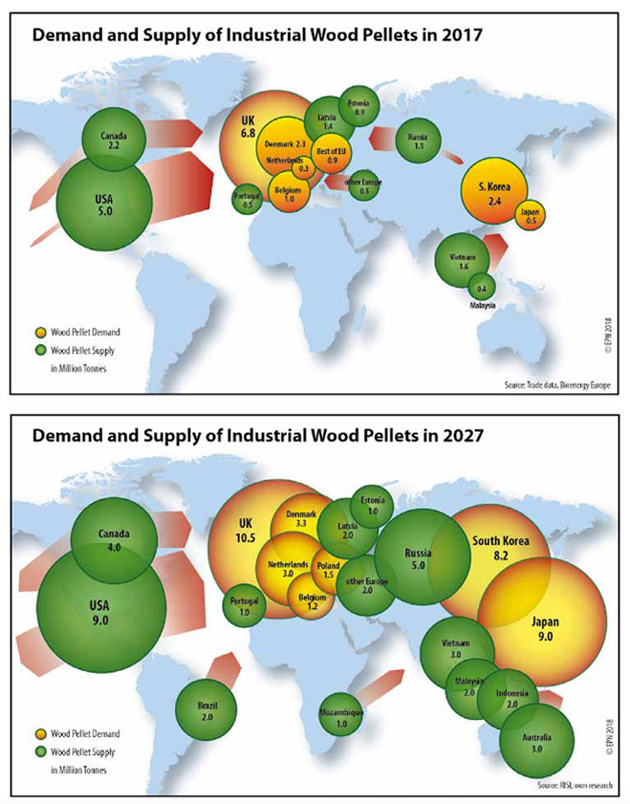
The scientists offered four mandates: end subsidies and other incentives that promote biomass for energy and heat; in the EU, stop treating biomass as carbon neutral under REDII, which falsely overstates emission reductions; in Japan, stop subsidizing power plants to burn wood; and in the US, stop treating biomass as carbon neutral as the Biden administration establishes new climate rules and incentives to curb global warming.
“Government subsidies for burning wood create a double climate problem because this false solution is replacing real carbon reductions,” says the letter. “Companies are shifting fossil energy use to wood, which increases warming, as a substitute for shifting to solar and wind, which would truly decrease warming.”
Last week’s lobbying effort is the latest on behalf of US, European and Canadian scientists and economists to highlight robust science demonstrating the negative environmental impacts of biomass-for-energy to world leaders, whose national bioenergy policies have helped create a multibillion industry in wood-pellet production.
A similar letter signed by nearly 800 scientists in 2018 lobbied the EU to alter its biomass policies, to no avail.

“Better audience this time”
Tim Searchinger, a senior research scholar at Princeton University and forest biomass expert, helped draft the new letter. He told Mongabay he‘s more hopeful this document will produce positive results.
“We sense there is a growing recognition in Europe of the [biomass emissions] problem, [even as] there is increasing evidence of large, additional wood harvests since 2015 due to bioenergy,” Searchinger said. “So we think the letter may have a better audience this time. In the US, our hope and expectation is that leaders like [incoming Environmental Protection Agency Administrator] Michael Regan and [National Climate Adviser] Gina McCarthy will make sure that we get this issue right.
“But we know that not every newcomer to the [Biden] administration feels this way, so it’s useful that they be aware of the weight of the scientific evidence.”

The letter warns of the adverse climate and biodiversity impacts of biomass burning: “Your decisions going forward are of great consequence for the world’s forests because if the world supplied just an additional 2% of its energy from wood, it would need to double its commercial wood harvests.”
In North Carolina, for example, Enviva, one of the leading US biomass producers is already harvesting some 60,000 acres of woodland annually to produce 2.5 million tons of wood pellets for export, according to calculations by the Dogwood Alliance, a forest preservation NGO based in the state.
“The burning of wood will increase warming for decades to centuries. That is true even when the wood replaces coal, oil or natural gas,” noted two of the letter signees, Jean-Pascal van Ypersele, former chair of the UN Intergovernmental Panel on Climate Change; and Peter Raven, US National Medal of Science winner.
EU to reassess biomass carbon neutrality designation?
Even as the scientific consensus against forest biomass hardens, EU public opinion is beginning to turn against this form of bioenergy, with more than 40,000 Europeans signing onto a petition against burning forests to produce electricity. Importantly, Franz Timmermans, vice president of the EU Commission, told the Dutch press recently that the European Union will re-evaluate its policies on biomass under REDII as early as June.
In a response to questions from Mongabay, a spokesperson for the European Commission elaborated, without specifically addressing the policy shifts requested in last week’s letter:
“More sustainable bioenergy is needed to achieve the 2030 climate and energy targets and long-term climate neutrality,” said the spokesperson. “It is important to ensure, however, that the supply and demand will not be bigger than needed for this objective and that bioenergy is produced and used in a sustainable manner, while negative environmental impacts are effectively avoided and minimized. Also… in the EU 2030 Biodiversity Strategy, the use of whole trees and food and feed crops for energy production — whether produced in the EU or imported — should be minimized.”
Speaking to Mongabay, Phil Duffy, a letter signee and president of the Woodwell Climate Research Center, was critical of the current EU position: “There is absolutely no reason why wood in any form needs to be burned to produce electricity. Wind, solar and nuclear are very low-carbon energy sources and are enormously abundant. Producing energy from these sources, while simultaneously expanding forests and other natural reservoirs to remove CO2 from the atmosphere, is not just carbon neutral but carbon negative. This is the only approach which has a remote chance of avoiding unacceptable climate outcomes.”
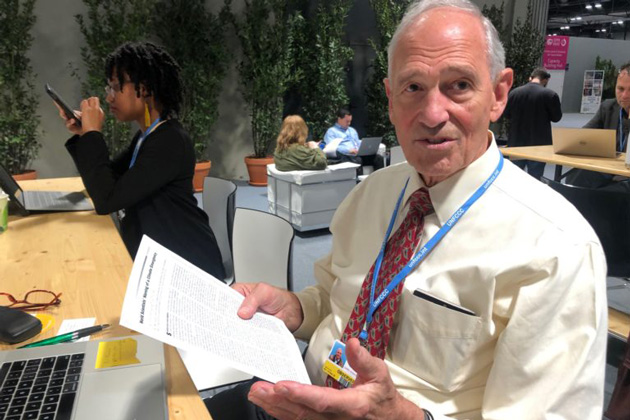
Bill Moomaw, professor emeritus at Tufts University and a leading biomass expert, helped draft the biomass letter from scientists. He too is critical of the EU response, and found it too vague to be hopeful, so far. “What do they mean by sustainable?” he asked. “How much will they minimize taking whole trees?”
Moomaw concluded: “We have to reduce all greenhouse gas emissions as rapidly as possible in the entire energy sector, including bioenergy. And we have to increase the uptake of carbon dioxide by our existing forests. The only way to do this is to let them grow. Planting new trees will contribute very little carbon sequestration in the narrow timeframe we have to slow the rate of global warming.”
Justin Catanoso is a regular contributor to Mongabay and a professor journalism at Wake Forest University in North Carolina. Follow him on Twitter @jcatanoso
This article first appeared on Mongabay.

